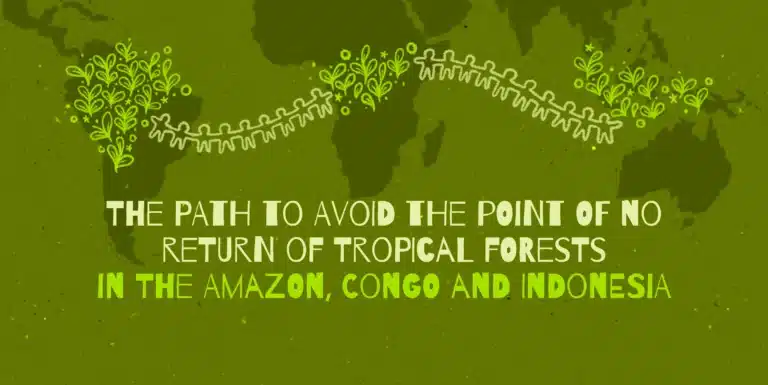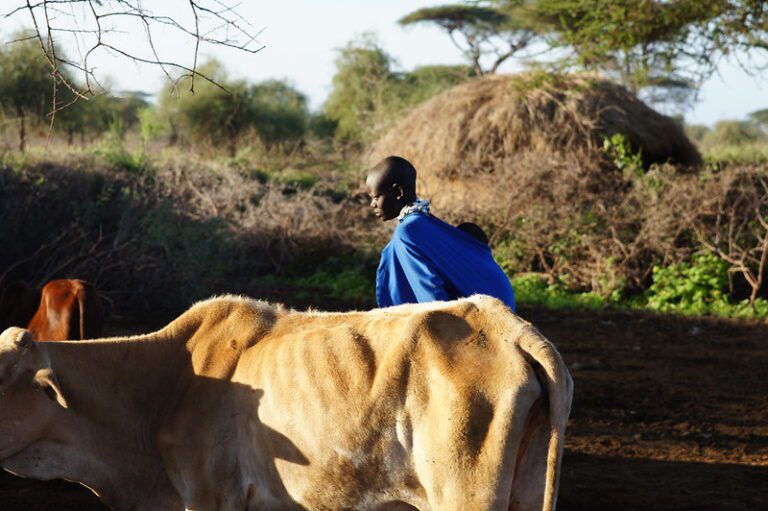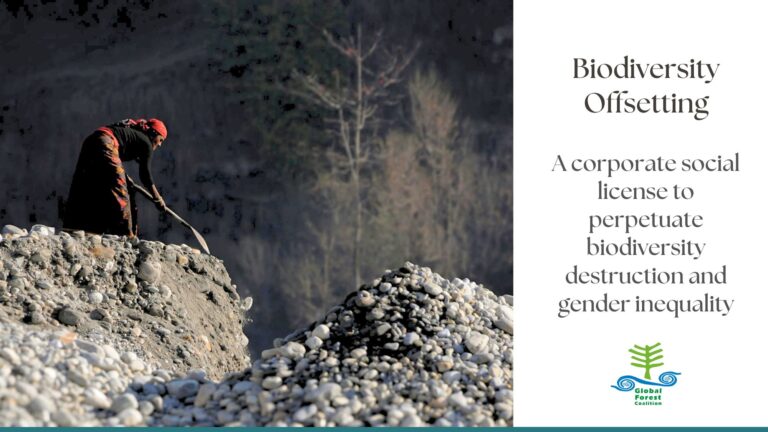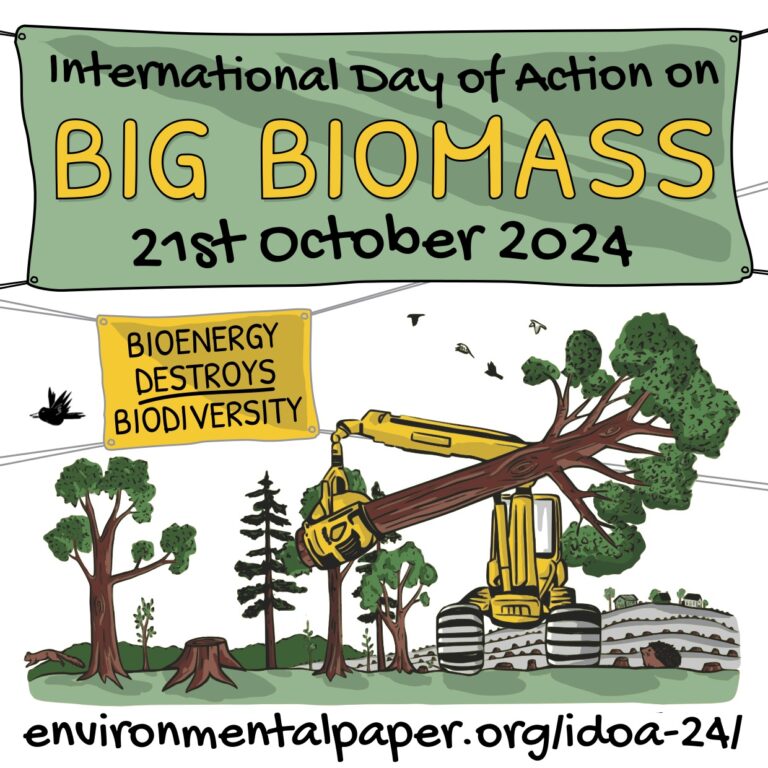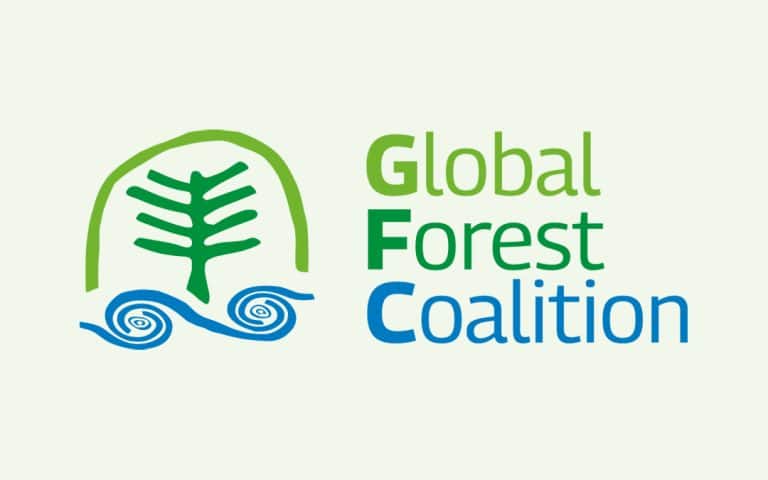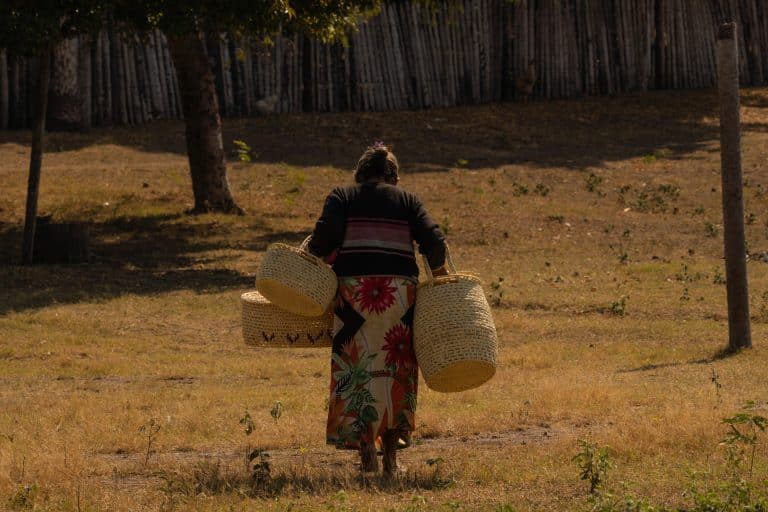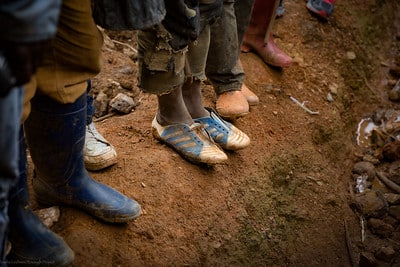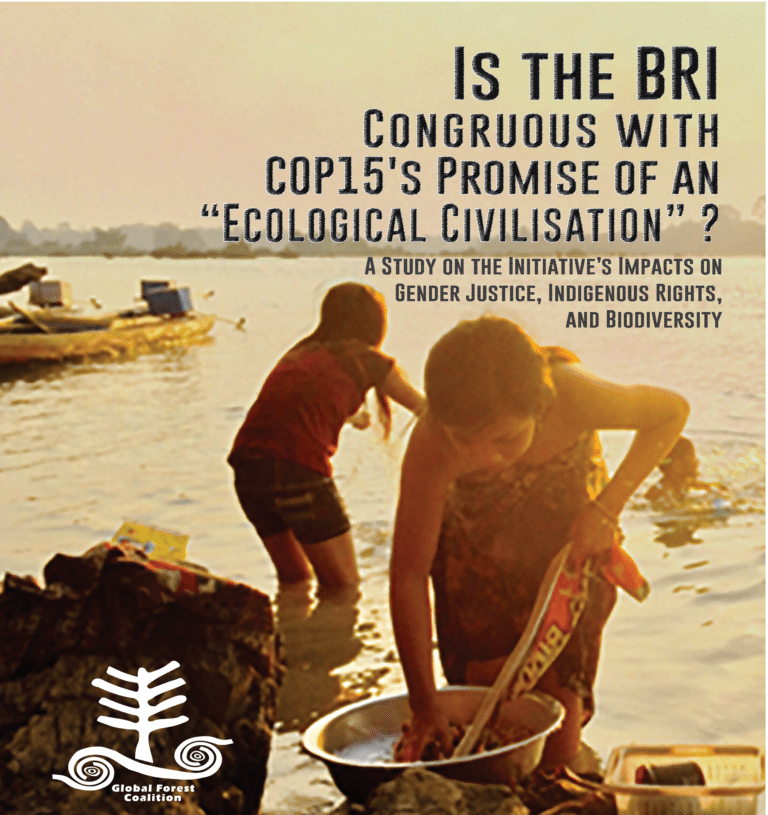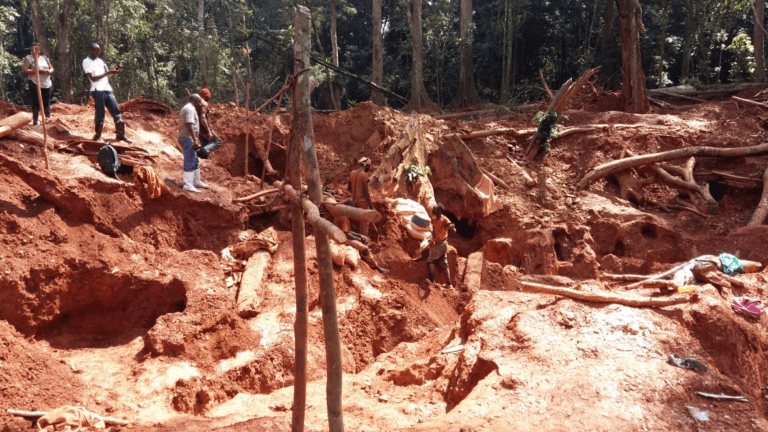Extractive Industries, Tourism & Infrastructure (ETI)
Mining, fossil fuel extraction, mass tourism, and large-scale infrastructure projects are major drivers of forest degradation, deforestation, biodiversity loss, and rights violations, often imposed without the consent of affected communities. These projects, including those under the Belt and Road Initiative, exploit forest territories and push for false solutions such as mechanisms like the Tropical Forest Forever Facility (TFFF).
Our campaign on Extractive Industries, Tourism and Infrastructure supports frontline communities in resisting harmful developments, amplifies their voices in global policy spaces, and advocates for rights-based and gender-just approaches. We push for an end to destructive mega-projects and promote truly sustainable pathways rooted in Indigenous knowledge, local stewardship, and gender and environmental justice.
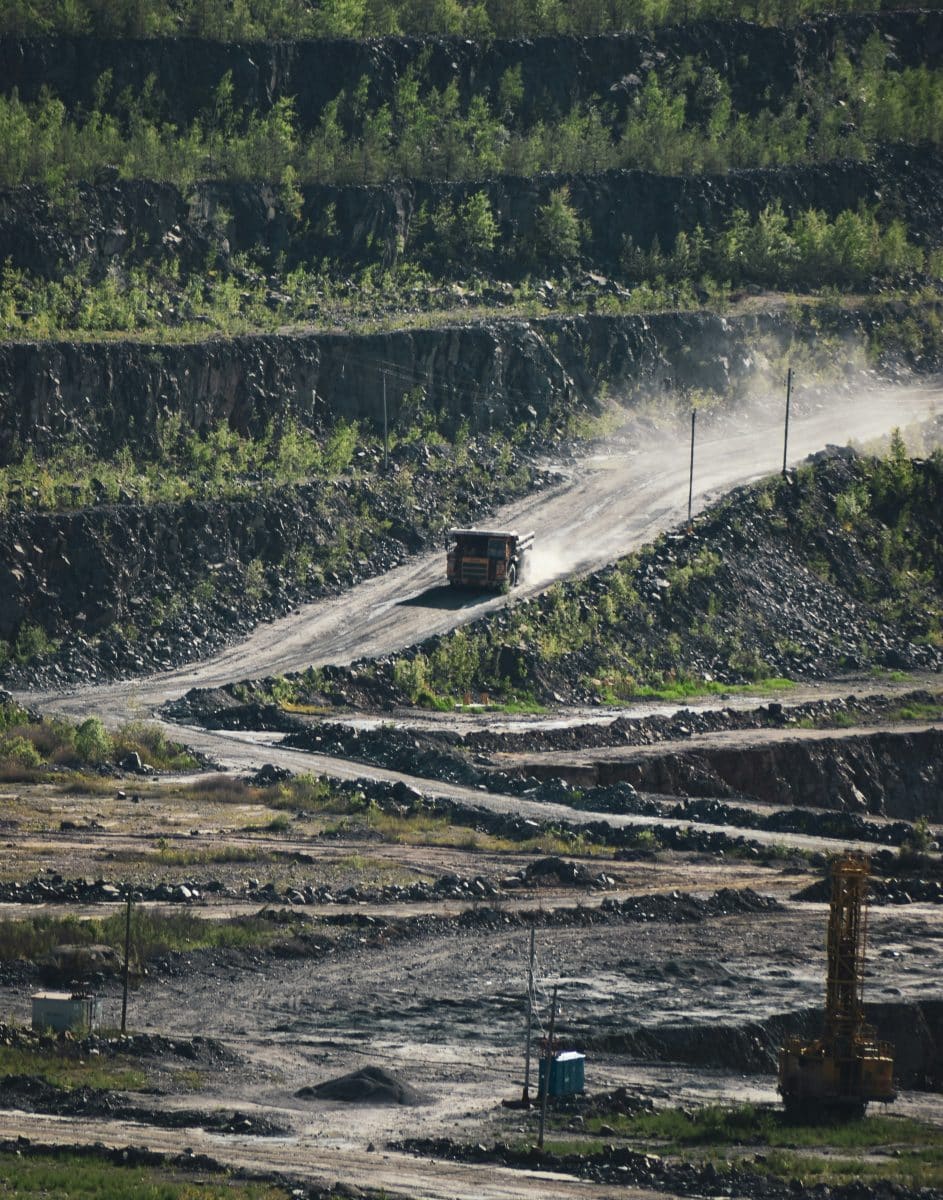
Read more . . .
Across the world, forests and biodiversity are being destroyed by large-scale extractive projects, tourism developments, and sprawling infrastructure. Oil and gas drilling, open-pit mining, mass and luxury tourism complexes, and the expansion of airports, roads, and hotels are leaving deep scars on ecosystems and communities. The impacts, especially on women in all their diversity, are profound, unjust, and unacceptable.
The Global Forest Coalition launched the Extractive Industries, Tourism and Infrastructure (ETI) Campaign in 2018, following urgent calls from our member groups. Many had seen firsthand the harm caused by mining, mass tourism, and related infrastructure projects, particularly those financed under the Belt and Road Initiative (BRI). Our campaign works to protect forests and uphold the rights of communities through targeted advocacy aimed at the decisionmakers behind these mega-projects.
Today, the ETI Campaign is more critical than ever. The climate crisis is fuelling new threats, from devastating forest fires to the financialisation of nature through biodiversity credits and markets. While phasing out fossil fuels and moving toward an energy transition are essential, these processes are too often linked to more mining, airstrip expansion, and infrastructure development, such as roads, buildings, and more, opening the door to more environmental harm.
We are working to ensure affected communities, especially women in all their diversity, can speak out and be heard on the issues of tourism, infrastructure, and extractive industries, as well as the gender injustices they involve. Together, we defend communities’ rights, protect their livelihoods, and safeguard the forests they call home.
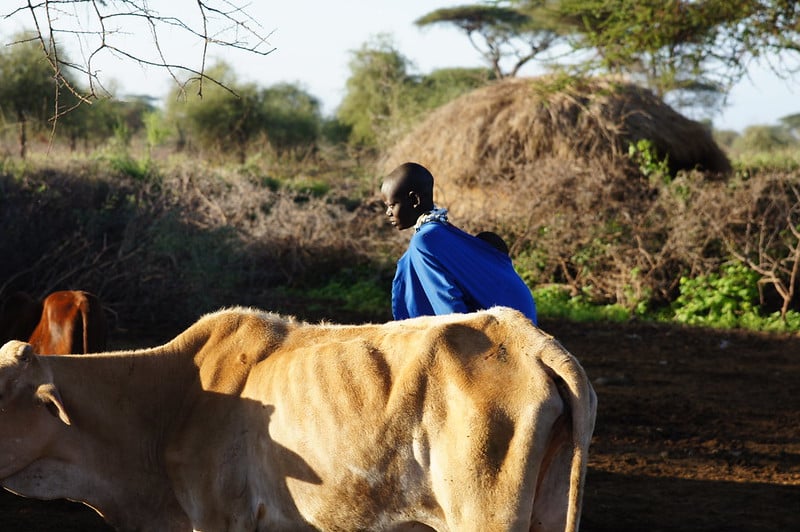
Tourism’s Impact on Communities in East Africa: Integrating Biocultural Protocols in Tourism and Biodiversity Policies
This research paper explores the complex relationship between tourism, biodiversity, and Indigenous rights, using the case of the Maasai community to highlight broader issues faced by Indigenous Peoples and Local Communities (IPLCs) globally. It examines how the influx of mass tourism—often under the guise of ecotourism and conservation—has led to the erosion of the land rights, traditional knowledge, and cultural identity.
Exploited Lands, Exploited Lives: Struggles for Forests, Life, and Gender Justice in the Global South
Forests are complex living ecosystems—homes, sources of livelihoods, and foundations of life. Yet across the world, they are devastated by extractive industries, agribusiness, and corporate greenwashing disguised as “climate solutions.” Who suffers most? The South,...
Solidarity with Eastern DRC amid attacks on people and environment by March 23 Movement
SIGN ON A call for international solidarity against the environmental and humanitarian crimes committed in eastern Democratic Republic of the Congo by the Mouvement du 23 mars (M23/AFC) Armed conflicts perpetrated by local and foreign groups have sown terror among...
The path to avoid the point of no return of tropical forests in the Amazon, Congo and Indonesia
The path to avoid the point of no return of tropical forests in the Amazon, Congo and Indonesia The Amazon, Congo, and Indonesian tropical forests—three of the world's largest and most vital ecosystems—are at a critical juncture. Real solutions to preserve these...

